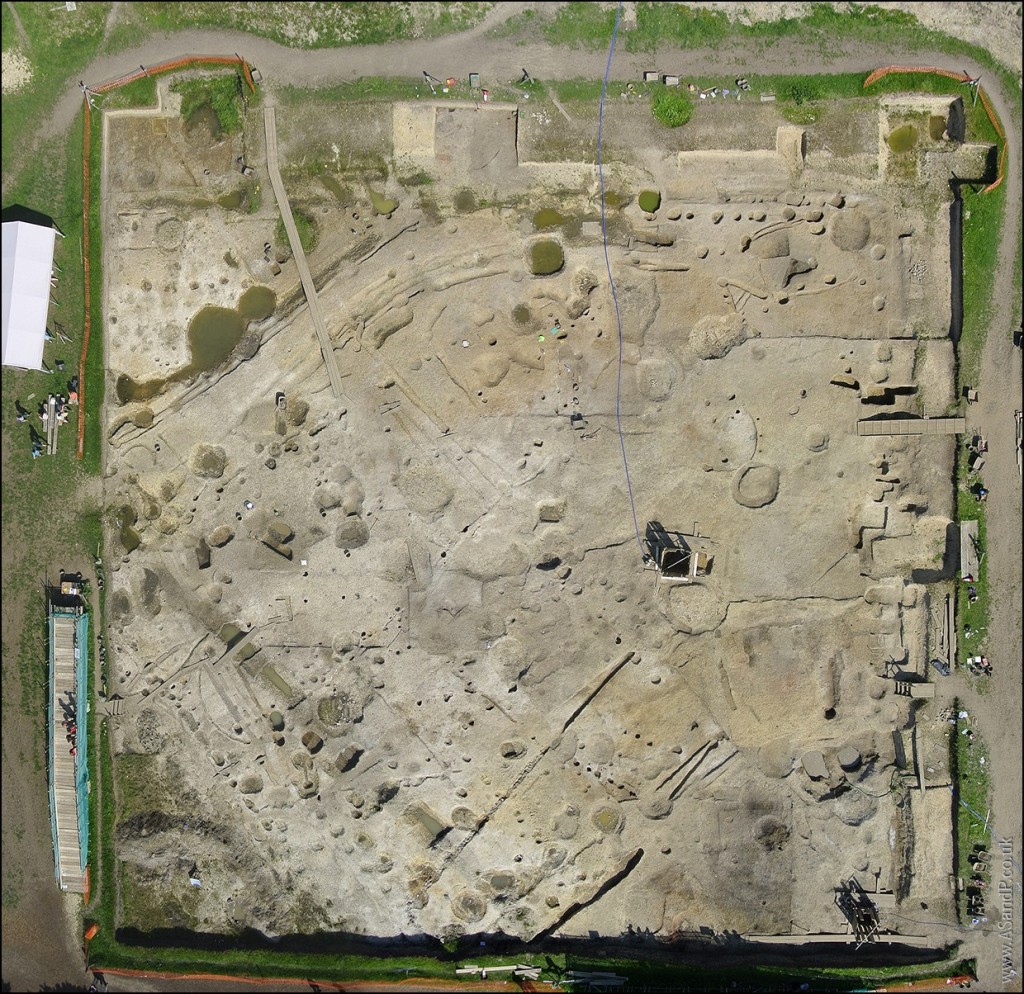 HAMPSHIRE, ENGLAND—How do archaeologists decide when to call it a day? At the Roman town of Calleva Atrebatum, modern Silchester, project director Mike Fulford of the University of Reading says it’s time to stop digging more than 100 years after Victorian archaeologists first began to explore the site, reports the Guardian. “Nothing left there except gravel and natural geology," says Fulford, "nothing of any interest whatsoever." But that has certainly not been the case over the four decades that Fulford has been digging at Silchester, one of the best-preserved and completely excavated towns in Roman Britain. In addition to impressive standing remains, the site has produced some of the most important and compelling ancient Roman artifacts in Britain including the island’s oldest olive pit, dog, raven and cat burials, a spectacular knife depicting two mating dogs, a soldier’s folding skillet, as well as important pre-Roman finds including what may the largest Iron Age hall ever found in Britain. Yet despite the extensive excavations, archaeologists have not yet been able to figure out why was this major town abandoned in the sixth century. With the last digging season over and 6,000 tons of excavated soil waiting to use as backfill, Fulford is content to let that question remain a mystery.
HAMPSHIRE, ENGLAND—How do archaeologists decide when to call it a day? At the Roman town of Calleva Atrebatum, modern Silchester, project director Mike Fulford of the University of Reading says it’s time to stop digging more than 100 years after Victorian archaeologists first began to explore the site, reports the Guardian. “Nothing left there except gravel and natural geology," says Fulford, "nothing of any interest whatsoever." But that has certainly not been the case over the four decades that Fulford has been digging at Silchester, one of the best-preserved and completely excavated towns in Roman Britain. In addition to impressive standing remains, the site has produced some of the most important and compelling ancient Roman artifacts in Britain including the island’s oldest olive pit, dog, raven and cat burials, a spectacular knife depicting two mating dogs, a soldier’s folding skillet, as well as important pre-Roman finds including what may the largest Iron Age hall ever found in Britain. Yet despite the extensive excavations, archaeologists have not yet been able to figure out why was this major town abandoned in the sixth century. With the last digging season over and 6,000 tons of excavated soil waiting to use as backfill, Fulford is content to let that question remain a mystery.